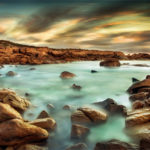You’ve just bought your first digital camera and have never owned a camera before — not even film. You open the box, take out the manual, and there is nothing in there that tells you how to take photos. Just about the workings of the camera. You want to take beautiful photos. So where do you go to begin?
One of the most daunting things many of us have to do is open a big box and figure out how a new piece of technology works. No less with a new digital camera. What compounds the situation is that learning how a digital camera works is only the beginning. Where do you start learning about photography once you’ve figured out the functions of the camera?
1. Relax and Read the Manual
Your DSLR is a piece of equipment that can be mastered — and very easily. Read through the manual once using a highlighter pen to mark the parts you know about or are familiar with. Then start again and reread all the parts you don’t understand. This should get you to a point where you know what you are unsure of. Now find a more experienced photographer or mentor who can help you. If you don’t have a mentor, go to the next point.
2. Enroll in a Basic Course on Digital Photography
What you need to understand is that for you to become a competent photographer you must know everything your camera can do — how it functions and all of its features. A competent photographer must know his or her camera. Here I am talking about digital photography in general and not creative photography and the art of composition. It should become second nature so that you don’t need to think settings — just creativity.
3. Focus on Learning Photography
This is different than learning digital photography, and focuses on the fundamentals and principles of photography. It is no different than film photography and encompasses composition and all the basics of photography. This will help you to learn how to create photos, use lighting, incorporate color effectively, and a host of other key principles.
4. Concentrate on the Practical
There is only one way that you will learn photography, and that is by practicing the principles and techniques you learn. All the theory in the world is not going to help you to take better images if you don’t physically put them into practice. Whatever your lifestyle and time commitments, you have to plan into your schedule opportunities to take photos regularly.
5. Review Your Work
Your photographic journey is going to be fun, but unless you start evaluating what you do through a review process, you won’t know where to improve. So a constant reviewing of your photos is essential to your growth. By joining a photographic club, you’ll be able to get external critiques of your images and through this improve of your techniques and gain additional skills.
Any learning journey is going to take time and effort, and it’s no different with photography. But knowing where to begin and how to get that journey moving is key to your success. So plan wisely and you will learn quickly and soon be shooting great images. Happy shooting!
About the Author:
Wayne Turner has been teaching photography for 25 years and has written three books on photography. He has produced 21 Steps to Perfect Photos; a program of learner-based training using outcomes based education.
Like This Article?
Don't Miss The Next One!
Join over 100,000 photographers of all experience levels who receive our free photography tips and articles to stay current:










I always tell new camera buyers not to worry about the manuals, they are usually so vague, they are not much help. But to go to the nearest bookstore and buy the book on that camera. I have found that from new to experienced, the books are far better, and more useful than the manuals that come with their cameras. But always make sure you get the book on your specific camera, to get the best results.
Thanks for sharing.